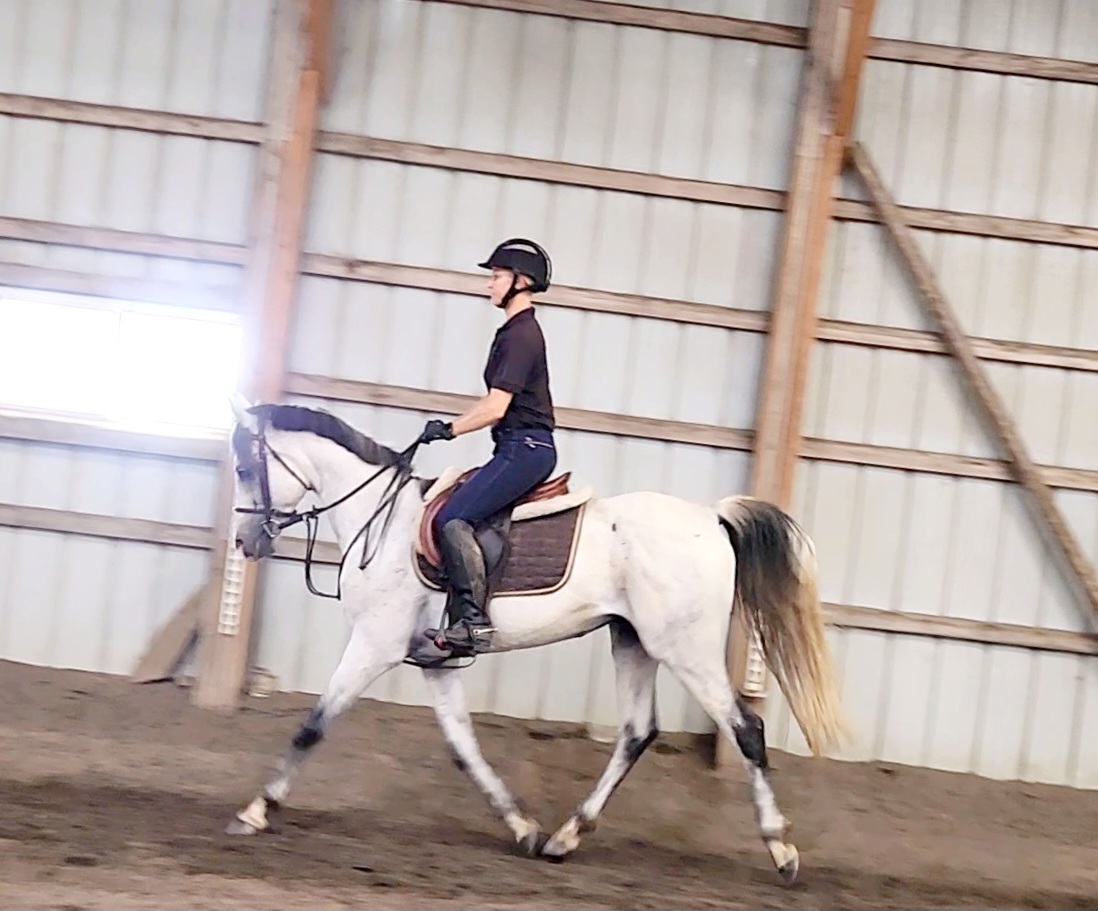
Departing. Photo credit: Shellie Sommerson.
Are your needs and/or your horse’s needs changing? Is the barn no longer a “happy place” for you? Or are you relocating to another area?
How do you go about finding a new barn that fits your and your horse’s needs? Here are some tips on navigating that journey:
Make a list of must-haves, nice to have, can’t live with, and can’t live without. I know – lists – UGH! But the lists will help you keep on track and not get caught up in hype or emotion. This process will help you think it out; knee jerk reactions often fail – and your horse’s well-being is at stake, and yours too.
An agent might be the right answer to help you research barns. The agent can take your list and seek out barns that meet your requirements/needs. If you are relocating to another area, an agent can be a real time-saver by narrowing down barns and reducing your running around in unfamiliar places. For local changes, an agent can keep your identity private until you are ready to make a move gracefully (more on that later). After the search, you may even discover that your current situation is the best option. Other options to aid in your search are Facebook, the World Wide Web, ask your current barn manager, trainer, friends, and ask other barns for suggestions.
Some needs to consider and have detailed on your lists:
- Full care, partial care, self-care (if you need full service sometimes or all of the time)
- As a horse ages, his living environment may need some adjustments in more feed and more turn-out, for example. Also, older horses can have a tougher time adjusting to change, so staying put may be the best option.
- Feed needs – grain quantity and type, hay, supplements, extra feed when needed, hay when out, round bales (if round bales are used, consult with your veterinarian to see if a botulism vaccine is recommended).
- If your horse has a vice (or vices), be upfront as that will be the best for your horse.
- Blanketing, exercising, amenities, bathroom facilities, kitchenette, refrigerator, farrier, vet, dogs, outside trainer, deworming program, trailer parking, parking area, inclement weather, storm plan, barn routine, storage area for extra feed, tack room space, holding the horse for farrier and veterinarian – are all important topics to investigate.
- Turn out, run-in shed, stall, fencing, footing (clay, sand, etc.), turned out alone or in groups or with a buddy? Are mares/geldings/stallions/youngsters/oldsters separated? From my experience, horses of like body types and feed requirements should live together if turning out with others. Be realistic here! A horse that needs lots of feed is not likely a good pasture mate with a horse that is an ‘air fern’!
- What type of riding do you do? If you want to be a 5* eventer but don’t yet have a horse, perhaps you should set your current needs appropriately and NOT ask Phillip Dutton for a stall.
- Do you need help with your horse and/or your riding?
- If you want to trail ride/ride-out, then probably best to select a situation with that available and not requiring hauling to the trails.
- Location — Consider traffic patterns at all times of the day and night, and days typically go to and from the barn.
- Cost — What is included in the cost? When is payment due? What is your budget?
There are different types of boarding situations – here are a few:
- Co-op – Work and responsibilities shared, scheduled among the boarders.
- Private – Close and ‘cozy’, often the feeling of sharing a house.
- Commercial – Think LARGE, possibly like being in a warehouse.
- Training Barn – Part of their training program, sometimes short term for starting/fixing/etc. Visits or time at the barn may be required to be scheduled with the trainer or barn manager.
- Competition Barn – Often very structured, and your time at the barn may need to be scheduled. The staff may provide all horse care.
Then there are personalities – other boarders, students, coaches, barn manager – what level of involvement and socialization do you want at the barn?
For some of you, perhaps it is time to buy your own farm or build on your property and bring your horse home, and you are finally ready to take that step.
Leaving gracefully – Provide the proper notice that you are leaving. Some barns request/require 30 days notification; know what situation applies to the barn you are leaving and the barn you are moving to. If you can’t say something nice, best to leave it unsaid, don’t get into comparison, criticism, or war of words, do your very best to be gracious and be on good terms. This is not the time and place to “teach someone a lesson.” Keep your thoughts to yourself.
Brought to you by BANIXX – The #1 trusted solution for equine and pet owners! Learn more about Banixx:




















